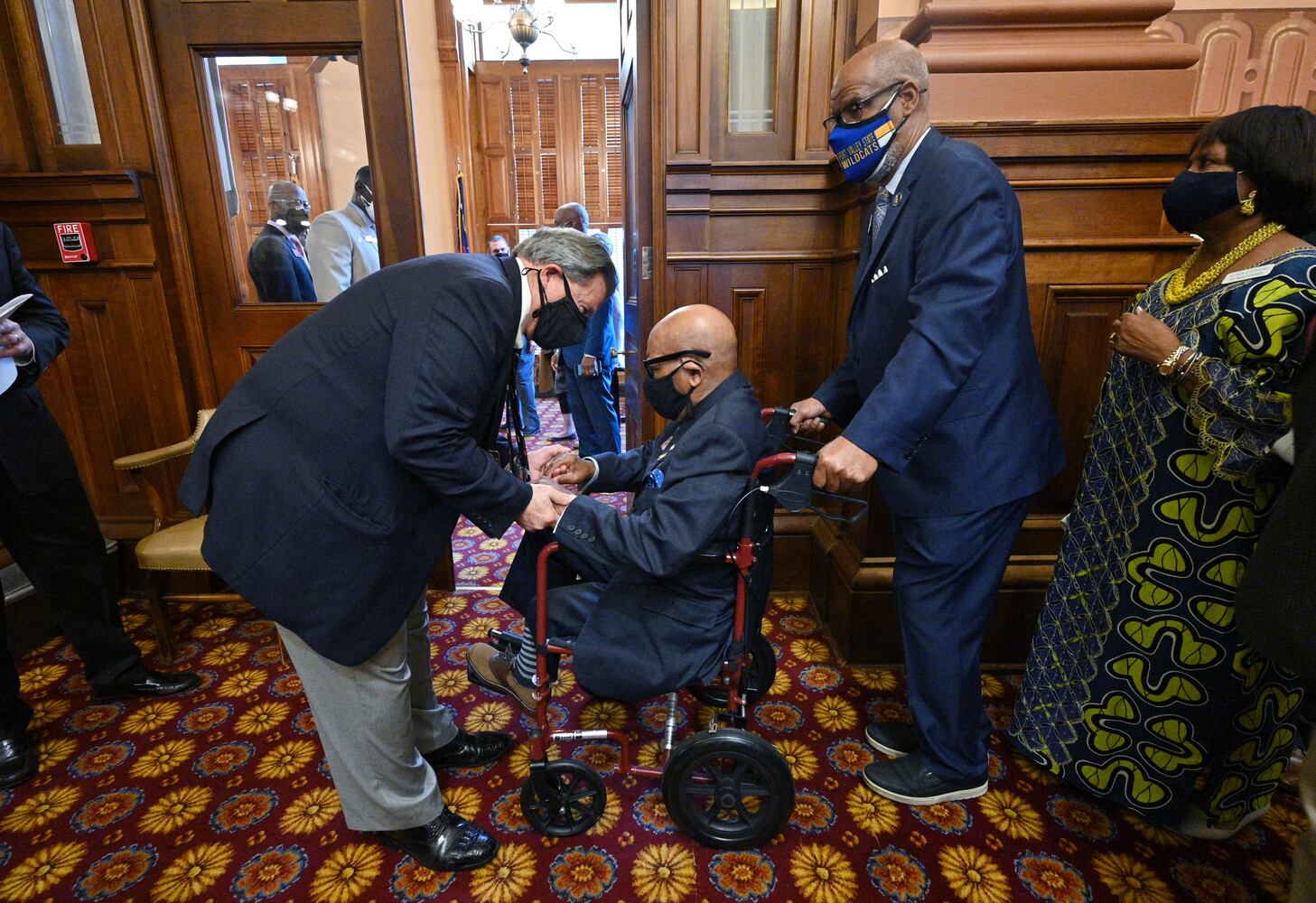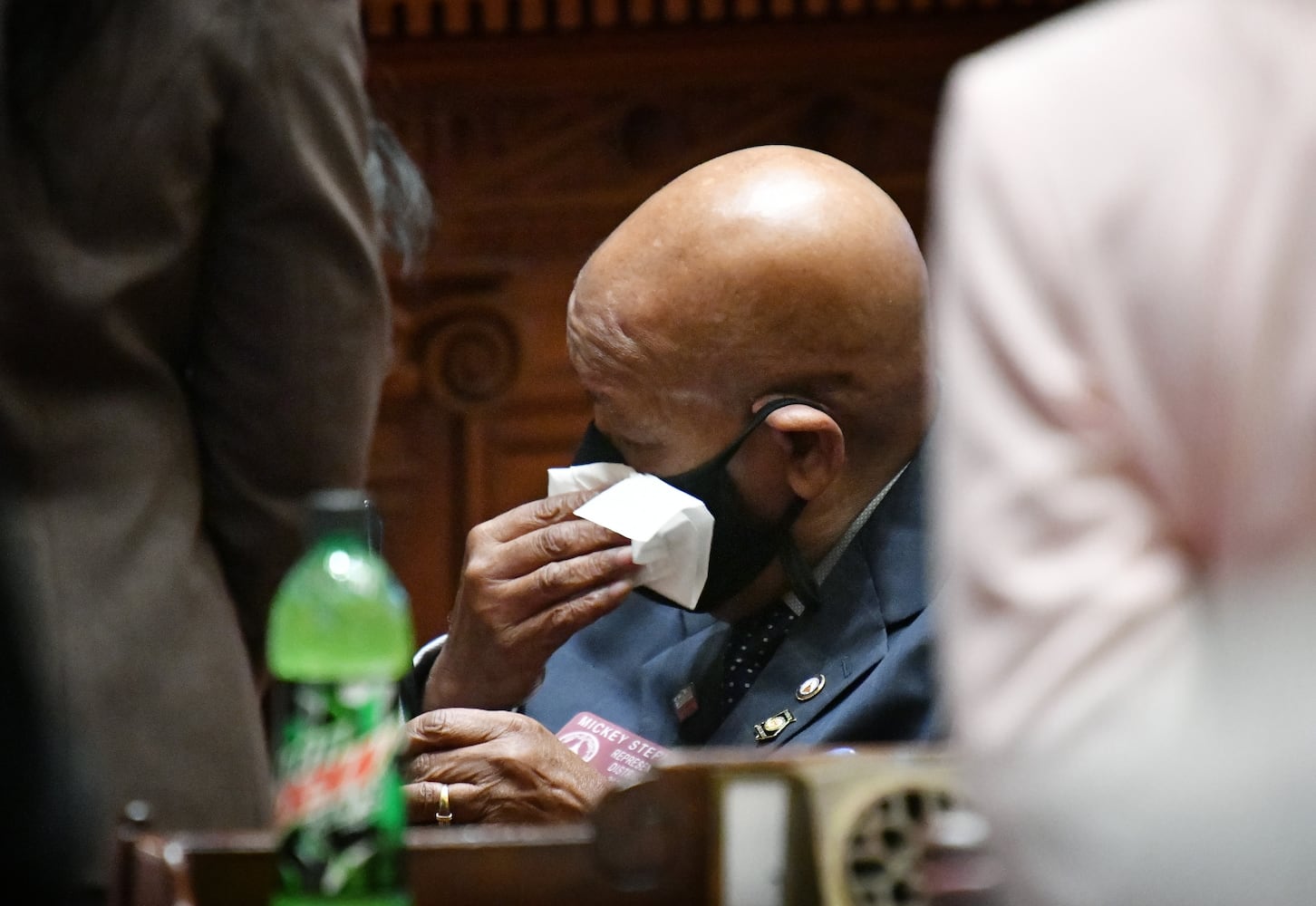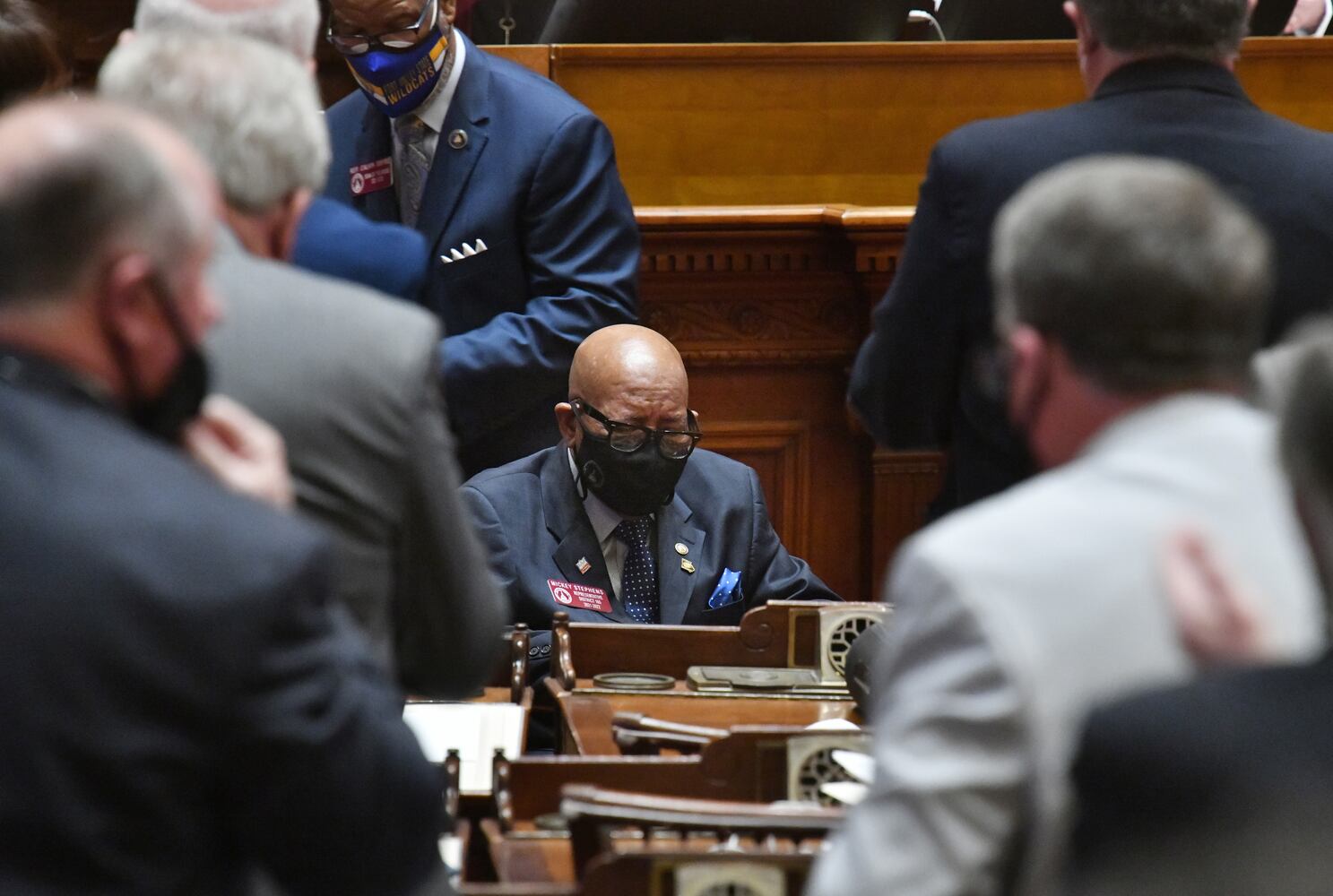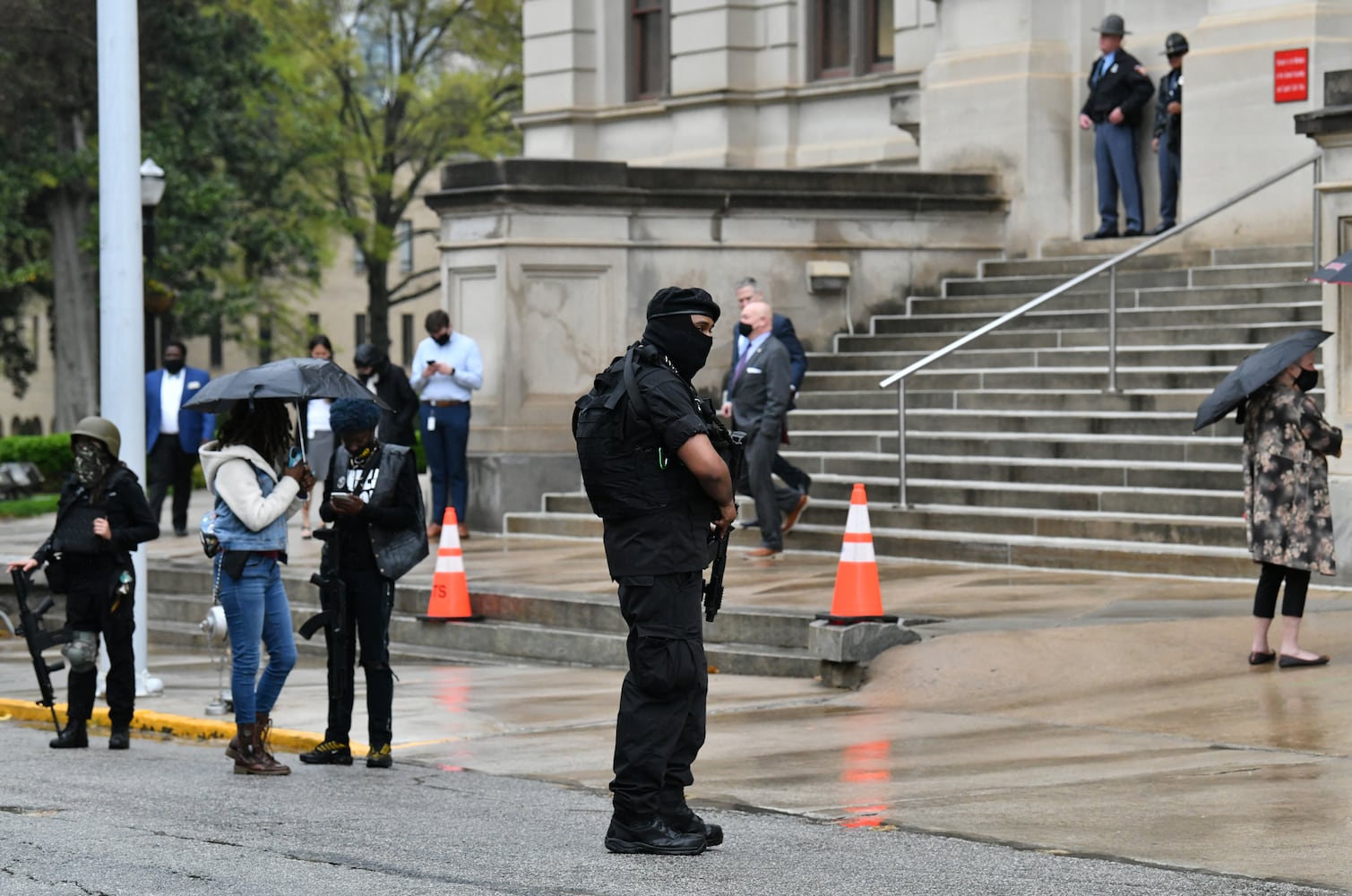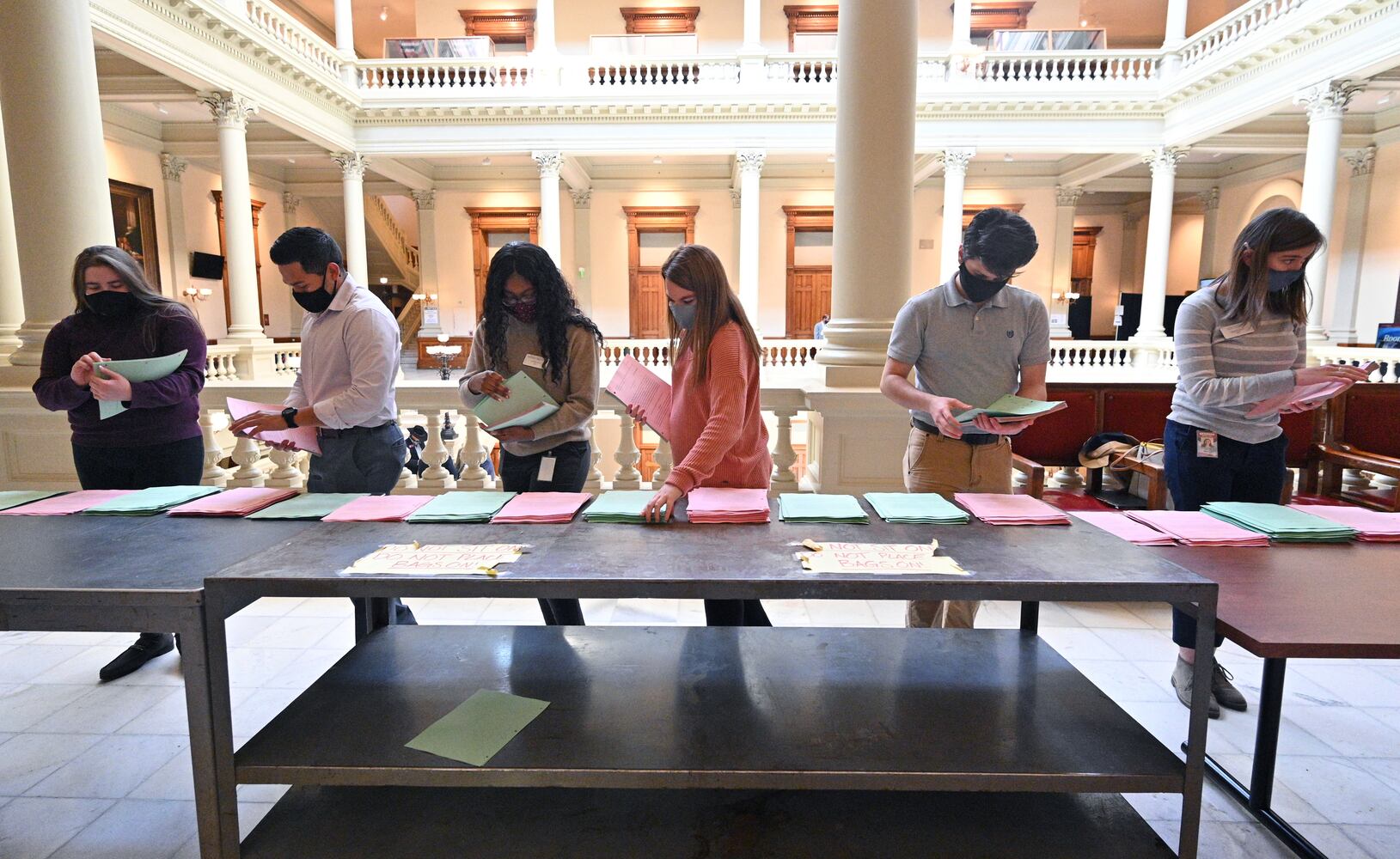Just as it’s hard to remember a time when there wasn’t a COVID-19 pandemic, state lawmakers may have a hard time thinking back to their world before 2020 started.
They have been in either a General Assembly session or political campaign season virtually every day since Jan. 13, 2020, a span of almost 15 months in which they’ve cut state spending, increased it, cut spending again and raised it again while welcoming record federal aid.
They’ve argued about voting machines, then run primaries delayed by the pandemic, pushed their bases to record turnouts, seen Democrats flip the presidency and two U.S. Senate seats while Republicans mostly held the line in General Assembly races. Some Republicans claimed voter fraud, except in their own elections, which they found to be totally legit.
They’ve held a session that lasted from January through mid-March in 2020, another one that lasted two weeks in June, and a third from early January this year until the finale, today.
They took part — as candidates, fundraisers and supporters — in elections in June, August, November and, finally on Jan. 5. Six days later, they started the 2021 General Assembly session.
“It’s been the two P’s: pandemic and politics,” said Rep. Calvin Smyre, D-Columbus, the dean of the General Assembly who was first elected in 1974. “It is a strange feeling. From a body standpoint and a mental standpoint, it has been more stressful than normal.”
Now comes the 40th and final day when — after 15 months of almost nonstop lawmaking and politicking — legislators will take up dozens of bills, some a conglomeration of three, four or six measures that started the session as individual proposals and have been crammed into one.
Most Day 40s run from 10 a.m. to midnight, and in some years beyond, with lawmakers voting on rewritten proposed statutes that they sometimes have little or no time to read, doing so in rapid succession before the House speaker and lieutenant governor semi-simultaneously bring down the final gavel and yell “Sine Die.”
It can be a head-spinning experience as night falls and tired lawmakers turn to seatmates and ask, “Wait, what did that bill do?”
House Rules Chairman Richard Smith, R-Columbus, who joined the General Assembly 16 years ago, on Wednesday had a piece of advice for members of his committee, which decides which bills get voted on and which don’t.
“If things get a little hectic tomorrow, stand back, take a deep breath and say, ‘I’m ready,’ ” Smith said.
Ready or not, the House and Senate have a lot of work to do on Day 40, as they usually do in a world where delaying until the last minute is both strategy and tradition.
The Republican majority last week won final approval for a voting bill that sucked up much of the oxygen this session, a new law that is already being contested in court. They have also pushed through a modest state income tax cut, which, as in the case of the voting bill, Gov. Brian Kemp has signed into law.
Lawmakers still need to approve a $27.2 billion budget for fiscal 2022, which begins July 1. By law, that’s the one thing the General Assembly has to do before quitting for the year.
But they also have to decide whether:
- To allow Georgians to vote on legalizing sports betting. The odds don’t appear good heading into Wednesday.
- The General Assembly will overhaul a Civil War-era state law that allows Georgians to arrest someone they suspect of committing a crime, a proposal spurred by the killing of Ahmaud Arbery last year.
- To ban Kemp and legislative leaders from raising campaign money from lobbyists and other special interests during General Assembly sessions.
- To pass yet another new law backed by gun rights advocates, just two weeks after eight people were fatally shot in three Atlanta-area spas.
- To create or renew several special-interest tax breaks while at the same time giving legislative leaders the authority to review tax breaks to see whether they do what the lobbyists pushing them say they will do — create or retain jobs.
- To ban cities and counties in Georgia from cutting their law enforcement budgets by more than 5% in one year or cumulatively across five years.
- To require new drivers and those who need to take driver improvement courses to take instruction in the best ways to interact with law enforcement.
Once lawmakers head for home Wednesday night or Thursday morning, their break will be shorter than usual.
Typically, sessions last from January to late March. Then lawmakers come back the next January.
But this year some legislators will be starting campaigns for statewide office or Congress in 2022, with fundraising starting almost immediately.
There are also several study committees likely to get started this summer, including possibly a geeky but important one to rewrite the state’s tax code.
And looming for the entire General Assembly this fall is the once-a-decade special session to redraw their political districts and those of members of Congress, based on 2020 census data that is due out later this year.
Legislators essentially get to pick their voters, and typically the majority — currently Republicans — redraw lines to help themselves maintain or increase their numbers. After a 2021 session in which Republicans passed a voting bill against vocal Democratic opposition, the redistricting session will be a political war that will help decide which party runs the General Assembly for the next decade.
About the Author
Keep Reading
The Latest
Featured




